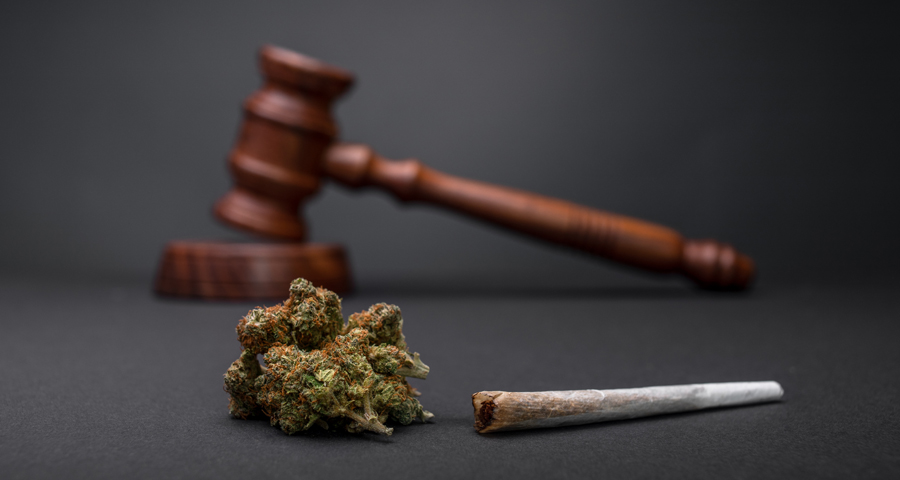
Below are the following known drug offences in Canada.
- Possession of Drugs
- Trafficking of Drugs
- Importing Drugs
- Production of Drugs
- Proceeds of Crime
- Double Doctoring
There are a number of drug/controlled substance offences in Canada ranging from a relatively minor simple possession of marijuana charge to very serious offences such as importing large quantities of cocaine. Regardless of the gravity of the offence, a conviction or finding of guilt for any drug charge will have significant impact on your life. For example, any record at all with respect to even the most minor drug related offence will restrict your travel privileges indefinitely. The more serious drug offences command lengthy jail sentences as the norm.
At Daley, Byers we have extensive experience in this area of criminal law. We have successfully defended cases involving:
- importation of over 50 kilograms of cocaine
- importation of large quantities of marijuana
- grow ops
- manufacturing (production) of ecstasy, crystal meth, meth
- possession for the purpose of trafficking (a) cocaine, (b) marijuana (c) ecstasy (d) oxycontin (e) heroine (f) crystal meth (g) ketamine
- trafficking the aforementioned drugs
- simple possession of the aforementioned drugs

There are many cases where we have successfully negotiated a resolution regarding a reduction from a charge from possession for the purpose of trafficking down to a simple possession, even in cases involving large quantities of drugs.
The following is a list of possible drug related offences.
- Drug possession (simple possession), s. 4(1) Controlled Drugs and Substances Act
- Possession for the purpose of trafficking, s. 5 (2) Controlled Drugs and Substances Act
- Trafficking, s. 5(1) Controlled Drugs and Substances Act
- Importing and exporting prohibited substances, s. 6 (1) Controlled Drugs And Substances Act
- Production (including Grow ops), s. 7 (1) Controlled Drugs And Substances Act
- Aggravating factors that a court must take into consideration on sentencing, s. 10 Controlled Drugs And Substances Act
- Proceeds of Crime
The senior partners have over 29 years of experience and have accumulated extensive knowledge and experience in the complexities of building a defence when a client is facing drug related charges. In addition, we have an entire team of experienced counsel to assist with the research, investigation, preparation and presentation of the defence.

THE SEARCH
The legality of the search that resulted in the discovery of the drugs is often the most crucial area in a successful defence.
Section. 8 of the Canadian Charter of Rights and Freedoms states:
“Everyone has the right to be secure against unreasonable search or seizure.”
At Daley, Byers we ensure that there are no instances where the Police have violated the rights of the individual in their drive to investigate drug offences. Some cases involve the use of a search warrant, while others rely on a search arising from a concurrent investigation orincident to arrest. Regardless of the “justification” for the search, it is imperative that the legality be examined carefully. At Daley, Byers we have successfully challenged numerous searches in our defence work resulting in charges being dismissed or withdrawn.
In addition to the “search”, there are number of other defences (depending on the nature of the charge), some of which include:
- challenging the treatment and handling of the physical evidence;
The prosecution must in every case prove continuity of the physical evidence. - the proof of the substance;
The prosecution in every case must prove scientifically that the drug is a controlled substance as defined in the Criminal Code. - the proof of ownership, knowledge, possession or control;
The prosecution must prove all aspects of the case beyond reasonable doubt. - necessary intent;
The prosecution must prove the accused had the requisite intent to commit the crime. This can arise in a simple possession case if, for example, the accused had no knowledge of the existence of the drug (passenger in a car where drugs are found). Intent is often a consideration in possession for the purpose of trafficking charges where the accused maintains the drugs were for personal use only.
Seizure of money and property are also often connected to a drug related charge under the proceeds of crime, and property used in the commission of a crime provisions in the Criminal Code of Canada. Daley, Byers has extensive experience in this area often gaining the return of all such seizures made by the Police.
Sentencing in these cases is very sensitive and depends upon a number of factors including, of course, the type and amount of drug. Sentencing submissions are crucial and require extensive preparation to obtain results. Ken Byers (partner) in a recent case was successful in having a conditional sentence imposed where the accused was facing his 2nd grow op conviction. A conditional sentence usually includes a form of house arrest and is often difficult to obtain on a first conviction. In this case, there was no actual jail sentence imposed.
Experience in the courtroom is of vital importance, and we have the team to provide the necessary ingredients for success. Call Daley, Byers. “Protect your Rights.”
Why Clients Choose Us?
- High Success Rate
- Experienced: 32+ Years Each Partner
- Fair Payment Plans
- 24/7 Access to Our Team
- Free Consultation
- We Care About Your Case
